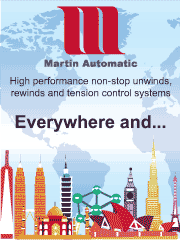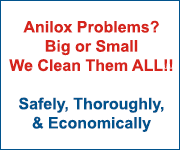Tetra Pak plant in Spain is environmentally certified.
- Published: August 01, 1996, By Wolpert, Vladimir
Tetra Pak's converting facility for aseptic paper/poly/foil liquid food packaging materials in Arganda, near Madrid, Spain, has become the first factory within the group to receive environmental certification. The facility is also among the first in Europe to receive such certification.
The certifying body is the Asociacion Espanol de Normalizacion y Certificacion (AENOR). The certification is in accordance with Spanish national standard UNE 77801 and verifies that the Arganda plant has a voluntary Environmental Management System (EMS) in place.
The plant's main product is Tetra Brik Aseptic packaging material used to produce rectangular Tetra Brik aseptic cartons. These cartons can provide perishable foods such as milk with an unrefrigerated shelf life of six months. Main production equipment at the Arganda facility includes a laminator, offset printing presses, slitting units, shrink tunnels, and palletizers.
A team led by the company's Quality and Environmental Management Systems Coordinator has been working on the program for the last two years. The final step entailed a one-week final audit by two government officials from AENOR. One month later, after correcting a number of minor noncompliances, Arganda received certification.
Environmental affairs director Jaime Santafe says that certification has provided three major benefits to the facility. "The first is we know exactly what all the environmental impacts of our production processes are and where we should devote our biggest efforts. Second, we will be prepared when our bigger customers begin demanding that their supplies be environmentally certified. Third, it allows us to position our company with further credibility as a responsible corporate citizen. Our next step will be to seek certification for our factory in Lisbon."
YANPET Expansion - The Saudi Yanbu Petrochemical Co. (YANPET) will construct its second worldscale ethylene cracker and plans to produce several derivative products over the next three years. The company is a 50/50 joint venture affiliate of Saudi Basic Industries Corp. (SABIC) and Mobil Yanbu Petrochemical Co. Inc.
Ibrahim A. Ibn Salaman, SABIC's vice chairman and managing director, reports the US $2 billion expansion project will more than double YANPET's existing production capacity. The project will include construction of an 800,000-metric tons/yr ethylene cracker, a 535,000-metric tons/yr polyethylene plant, and a 410,000-metric tons/yr ethylene glycol plant. The expansion will also yield 260,000 metric tons/yr of polypropylene.
The new cracker will use propane and light naptha as feedstock to produce ethylene. The process will produce a significant quantity of propylene that can be recovered and converted into value-added PP.
The expansion project will make YANPET one of the largest petrochemical complexes in the world, with the capacity to produce more than 1.6 million metric tons/yr of ethylene and more than 2 million metric tons/yr of derivative products. Construction is expected to begin next year, and startup is scheduled for early 2000.
Waste Disposal - Waste disposal and recycling look set to offer increasing market potential in Southeast Asia, according to a study into waste management in eight area countries. The study was undertaken jointly by INTEC, a specialist consultancy in Bonn, and the Regional Inst. of Environmental Technology (RIET) in Singapore.
Apart from industrial waste, the main focus of the study is municipal solid waste in urban areas of the eight "Asian Tiger" economies: Hong Kong, Indonesia, Malaysia, Philippines, Singapore, Taiwan, Thailand, and Viet Nam. These countries, which together have a population of some 440 million, have gross domestic products totaling US $880 billion. This figure is expected to double in the next few years.
The report's authors estimate that annual expenditure for domestic and industrial waste disposal in the region, currently US $12 billion/yr, will increase within 10 years to about US $40 billion/yr.
Vladimir Wolpert publishes reports dealing with paper and plastics technology, marketing, and environmental matters. He has been in the industry for more than 50 years.













